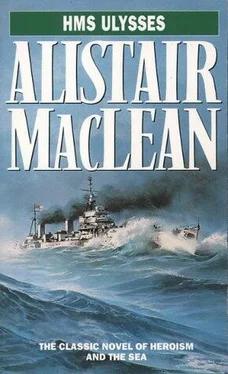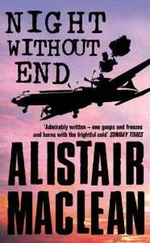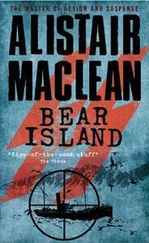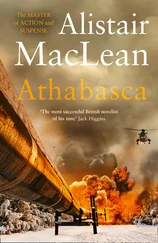1 ...8 9 10 12 13 14 ...79 The carriers, Defender, Invader, Wrestler and Blue Ranger, were in position to port and starboard, the Defender and Wrestler slightly ahead of the Ulysses, the others slighfly astern. It seemed de rigeur for these escort carriers to have names ending in -er and the fact that the Navy already had a Wrestler, a Force 8 destroyer (and a Defender, which had been sunk some time previously off Tobruk), was blithely ignored. These were not the 35,000-ton giants of the regular fleet-ships like the Indefatigable and the Illustrious-but 15-20,000 ton auxiliary carriers, irreverently known as banana boats. They were converted merchantmen, American-built: these had been fitted out at Pascagoula, Mississippi, and sailed across the Atlantic by mixed British-American crews.
They were capable of eighteen knots, a relatively high speed for a single-screw ship-the Wrestler had two screws, but some of them had as many as four Busch-Sulzer Diesels geared to the one shaft. Their painfully rectangular flight-decks, 450 feet in length, were built up above the open fo'c'sle, one could see right under the flight-deck for'ard of the bridge-and flew off about thirty fighters, Grummans, Seafires or, most often, Corsairs, or twenty light bombers. They were odd craft, awkward, ungainly and singularly unwarlike; but over the months they had done a magnificent job of providing umbrella cover against air attack, of locating and destroying enemy ships and submarines: their record of kills, above, on and below the water was impressive and frequently disbelieved by the Admiralty.
Nor was the destroyer screen calculated to inspire confidence among the naval strategists at Whitehall. It was a weird hodge-podge, and the term "destroyer" was a purely courtesy one.
One, the Nairn, was a River class frigate of 1,500 tons: another, the Eager, was a Fleet Minesweeper, and a third, the Gannet, better known as Huntley and Palmer, was a rather elderly and very tired Kingfisher corvette, supposedly restricted to coastal duties only. There was no esoteric mystery as to the origin of her nickname-a glance at her silhouette against the sunset was enough. Doubtless her designer had worked within Admiralty specifications: even so, he must have had an off day.
The Vectra and the Viking were twin-screwed, modified "V" and "W" destroyers, in the superannuated class now, lacking in speed and fire-power, but tough and durable. The Baliol was a diminutive Hunt class destroyer which had no business in the great waters of the north.
The Portpatrick, a skeleton-lean four stacker, was one of the fifty lend-lease World War I destroyers from the United States. No one even dared guess at her age. An intriguing ship at any tune, she became the focus of all eyes in the fleet and a source of intense interest whenever the weather broke down. Rumour had it that two of her sister ships had overturned in the Atlantic during a gale; human nature being what it is, everyone wanted a grandstand view whenever weather conditions deteriorated to an extent likely to afford early confirmation of these rumours. What the crew of the Portpatrick thought about it all was difficult to say.
These seven escorts, blurred and softened by the snow, kept their screening stations all day, the frigate and minesweeper ahead, the destroyers at the sides, and the corvette astern. The eighth escort, a fast, modern "S "class destroyer, under the command of the Captain (Destroyers), Commander Orr, prowled restlessly around the fleet. Every ship commander in the squadron envied Orr his roving commission, a duty which Tyndall had assigned him in self-defence against Orr's continual pestering. But no one objected, no one grudged him his privilege: the Sirrus had an uncanny nose for trouble, an almost magnetic affinity for U-boats lying in ambush.
From the warmth of the Ulysses's wardroom, long, incongruously comfortable, running fifty feet along the starboard side of the fo'c'sle deck, Johnny Nicholls gazed out through the troubled grey and white of the sky. Even the kindly snow, he reflected, blanketing a thousand sins, could do little for these queer craft, so angular, so graceless, so obviously out-dated.
He supposed he ought to feel bitter at My Lords of the Admiralty, with their limousines and arm-chairs and elevenses, with their big wall-maps and pretty little flags, sending out this raggle-taggle of a squadron to cope with the pick of the U-boat packs, while they sat comfortably, luxuriously at home. But the thought died at birth: it was, he knew, grotesquely unjust. The Admiralty would have given them a dozen brand-new destroyers, if they had them. Things, he knew, were pretty bad, and the demands of the Atlantic and the Mediterranean had first priority.
He supposed, too, he ought to feel cynical, ironic, at the sight of these old and worn-out ships. Strangely, he couldn't. He knew what they could do, what they had done. If he felt anything at all towards them, it was something uncommonly close to admiration-perhaps even pride.
Nicholls stirred uncomfortably and turned away from the porthole. His gaze fell on the somnolent form of the Kapok Kid, flat on his back in an arm-chair, an enormous pair of fur-lined flying-boots perched above the electric fire.
The Kapok Kid, Lieutenant the Honourable Andrew Carpenter, R.N., Navigator of the Ulysses and his best friend, he was the one to feel proud, Nicholls thought wryly. The most glorious extrovert Nicholls had ever known, the Kapok Kid was equally at home anywhere, on a dance floor or in the cockpit of a racing yacht at Cowes, at a garden party, on a tennis court or at the wheel of his big crimson Bugatti, windscreen down and the loose ends of a seven-foot scarf streaming out behind him. But appearances were never more deceptive. For the Kapok Kid, the Royal Navy was his whole life, and he lived for that alone.
Behind that slightly inane facade lay, besides a first-class brain, a deeply romantic streak, an almost Elizabethan love for sea and ships which he sought, successfully, he imagined, to conceal from all his fellow-officers. It was so patently obvious that no one ever thought it worth the mentioning.
Theirs was a curious friendship, Nicholls mused. An attraction of opposites, if ever there was one. For Carpenter's hail-fellow ebullience, his natural reserve and reticence were the perfect foil: over against his friend's near-idolatry of all things naval stood his own thorough-going detestation of all that the Kapok Kid so warmly admired. Perhaps because of that over-developed sense of individuality and independence, that bane of so many highland Scots, Nicholls objected strongly to the thousand and one pin-pricks of discipline, authority and bureaucratic naval stupidity which were a constant affront to his intelligence and self-respect. Even three years ago, when the war had snatched him from the wards of a great Glasgow hospital, his first year's internship barely completed, he had had his dark suspicions that the degree of compatibility between himself and the Senior Service would prove to be singularly low. And so it had proved. But, in spite of this antipathy, or perhaps because of it and the curse of a Calvinistic conscience, Nicholls had become a first-class officer. But it still disturbed him vaguely to discover in himself something akin to pride in the ships of his squadron.
He sighed. The loudspeaker in the corner of the wardroom had just crackled into life. From bitter experience, he knew that broadcast announcements seldom presaged anything good.
"Do you hear there? Do you hear there?" The voice was metallic, impersonal: the Kapok Kid slept on in magnificent oblivion. "The Captain will broadcast to the ship's company at 1730 tonight. Repeat.
The Captain will broadcast to the ship's company at 1730 tonight. That is all."
Nicholls prodded the Kapok Kid with a heavy toe. "On your feet, Vasco.
Читать дальше
Конец ознакомительного отрывка
Купить книгу












